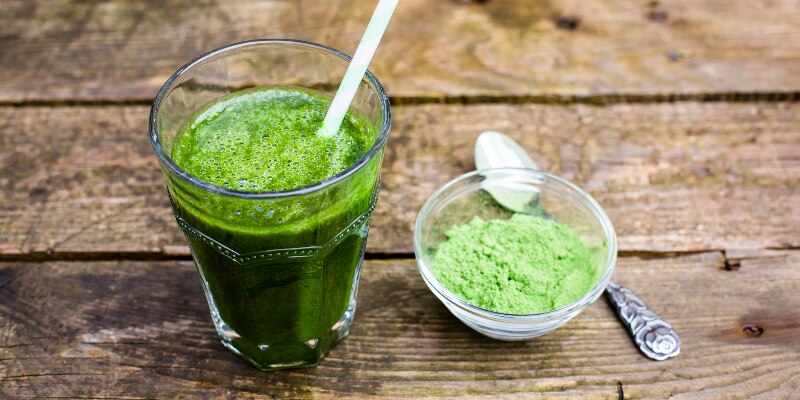by Melissa Chichester
Leafy greens and green vegetables are some of the healthiest foods on the planet – but most people don’t eat enough of them. Dark green vegetables are loaded with vitamins and minerals, fiber, and antioxidants. Unfortunately, many people don’t like the taste of these foods, so they don’t eat them. Luckily, there are ways to increase the number of greens in your diet by getting creative in the kitchen. You can also supplement with a wide variety of green supplements available today.
For sensitive eaters, it takes creativity to make green foods appetizing. Here are a few ways you can make green foods taste better – or mask their taste completely.
>>Unlocking the Superfood Secrets of Moringa

If you can’t stomach green vegetables in any form, there are green supplements that provide vitamins and minerals as well.
Organic Greens – This powder contains several green veggies and grasses in a convenient powder form, including: Organic barley grass, alfalfa grass, wheatgrass, chlorella, spirulina spinach, and parsley.
Spirulina – This blue-green algae is a highly digestible plant protein. Dried spirulina contains about 60% protein, amino acids, vitamins, and minerals like vitamin A and iron, as well as omega-3 and omega-6 fatty acids.
Sea Kelp – Kelp is one of the best food sources of iodine – a trace mineral that supports thyroid function and plays a role in growth, development, and metabolic processes.* Sea kelp also contains small amounts of magnesium, iron, dietary fiber, and Vitamin K.
Wheatgrass – Wheatgrass is a nutritious green that contains important nutrients such as potassium.
>>Shop all green food supplements
Chlorophyll – Chlorophyll is derived from alfalfa leaves and is used as an internal freshener.
Chlorella – Chlorella is a natural trace source of protein and plant enzymes to support overall health and wellness.*
Alfalfa – Alfalfa is a source of chlorophyll and promotes nutritional wellness.
Celery seed – Celery contains important nutrients and phytochemicals, which contribute to overall health and wellness.* If you don’t like the pungent taste of celery, give this one a try!
Moringa – Moringa has a history of use in Ayurveda and is an important food crop known as the natural nutrition of the tropics. It is a source of antioxidants and naturally occurring phytonutrients.*
Green Source Life’s Greens® Concentrated Superfood Formula – This green powder easily mixes into smoothies and other foods, and contains more than 35 active ingredients. That includes nutritious greens such as algae, grasses, astragalus, parsley, aloe vera, barley, and green tea.
Astragalus – Astragalus root is traditionally used to support immune health.* It also contains naturally occurring flavonoids and polysaccharides and is a source of essential trace mineral selenium.*
There’s no doubt about it – greens are incredibly important for good health. If you don’t like green vegetables or leafy greens, you can increase your intake by making them taste better or speaking with your healthcare practitioner about green supplements.